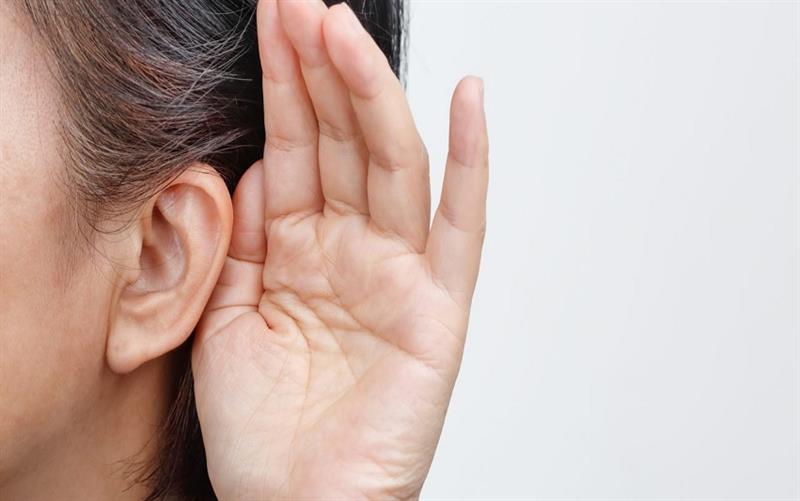
In the hustle and bustle of our daily lives, we often overlook the silent danger that surrounds us – noise pollution. While it may not be as visibly harmful as air or water pollution, the impact of constant exposure to noise can be equally devastating, silently stealing our hearing.
Noise pollution may be a silent danger, but its consequences are far from quiet. It's essential to recognize the threat it poses to our hearing and overall well-being. By taking proactive steps to protect ourselves and advocating for a quieter environment, we can preserve our precious sense of hearing for years to come.
In this article, we will delve into the world of noise pollution, exploring its causes, consequences, and most importantly, how you can protect your precious sense of hearing.
Understanding Noise Pollution
Noise pollution, often referred to as sound pollution, is the excessive or disturbing noise that disrupts the natural environment. It includes unwanted sounds from traffic, industrial machinery, construction activities, and even everyday activities like honking horns, loud music, and barking dogs.
The Sources of Noise Pollution
1. Urban Chaos:
The urban environment is a breeding ground for noise pollution. The constant traffic, construction work, and the sheer density of people create a symphony of unwanted sounds.
- Traffic Noise: The incessant honking of car horns, revving of engines, and the screeching of brakes contribute to urban noise pollution. This can be particularly problematic in congested cities where traffic never seems to subside.
- Construction Sites: The clanging of machinery and the pounding of construction equipment can disrupt entire neighborhoods, causing stress and sleep disturbances.
2. Industrial Zones:
- Factories and manufacturing units emit a cacophony of sounds that can be harmful to both workers and residents in the vicinity.
- Factory Machinery: The constant hum of industrial machines and the clattering of conveyor belts can lead to long-term hearing damage for those working in these environments.
3. Transportation:
Vehicles, particularly airplanes, trains, and automobiles, are significant contributors to noise pollution. The sonic boom of airplanes and the roar of engines can be deafening.
- Aircraft Noise: Near airports, the sound of aircraft taking off and landing can exceed safe noise levels, affecting the hearing of residents.
4. Recreational Noise:
Loud concerts, sporting events, and even personal entertainment systems can expose individuals to high levels of noise pollution.
- Concerts and Events: Attending concerts and sporting events without proper hearing protection can lead to temporary or permanent hearing damage.
- Personal Entertainment: Listening to music at high volumes through headphones or earphones can cause cumulative hearing damage over time.
How Noise Affects Your Hearing
1. Hearing Loss:
Prolonged exposure to loud noises damages the delicate hair cells in your inner ear, leading to hearing loss over time.
- Noise-Induced Hearing Loss (NIHL): This is a gradual but irreversible condition that often goes unnoticed until it's too late. It can impact your ability to communicate and enjoy everyday activities.
2. Tinnitus:
Constant exposure to noise pollution can cause tinnitus, a persistent ringing, buzzing, or hissing sound in the ears, which can be extremely bothersome.
- Tinnitus Management: There is no cure for tinnitus, but various therapies and techniques can help manage the symptoms and improve quality of life.
Non-Auditory Health Impacts
1. Stress:
Noise pollution elevates stress levels, leading to various health issues, including high blood pressure, cardiovascular problems, and sleep disturbances.
- Stress and Cortisol Levels: Noise-induced stress triggers the release of cortisol, a hormone that can have harmful effects on the body when consistently elevated.
2. Cognitive Decline:
Studies suggest that chronic noise exposure can impair cognitive functions, affecting memory and concentration.
- Impact on Cognitive Abilities: Noise pollution has been linked to decreased cognitive performance, especially in tasks that require focus and attention.
Protecting Your Hearing
1. Noise-Canceling Technology
- Use Earplugs: Whether you're at a concert or in a noisy workplace, investing in quality earplugs can significantly reduce your exposure to harmful noise.
- Choosing the Right Earplugs: There are different types of earplugs designed for various environments. Foam, silicone, and custom-molded earplugs offer different levels of protection and comfort.
2. Noise-Canceling Headphones:
These headphones are designed to eliminate background noise, providing a quieter listening experience.
- Active vs. Passive Noise Cancellation: Understand the difference between active and passive noise cancellation to choose the right headphones for your needs.
3. Lifestyle Changes
- Limit Exposure: Avoid prolonged exposure to loud environments whenever possible, and take breaks to give your ears a rest.
- Noise-Free Zones: Designate areas in your home or workplace where noise levels are controlled and kept to a minimum.
4. Lower Volume:
When using headphones or earphones, keep the volume at a safe and comfortable level.
- Safe Listening Guidelines: Follow the 60/60 rule – listen at no more than 60% of the maximum volume for no more than 60 minutes at a time.
It's ideal to keep yourself as educated with your hearing aids and a new breakthrough in the technology. Ask your query via Book an Appointment today. For more information visit https://hearing.careinc.ca or you can call us today at (403)605-6300